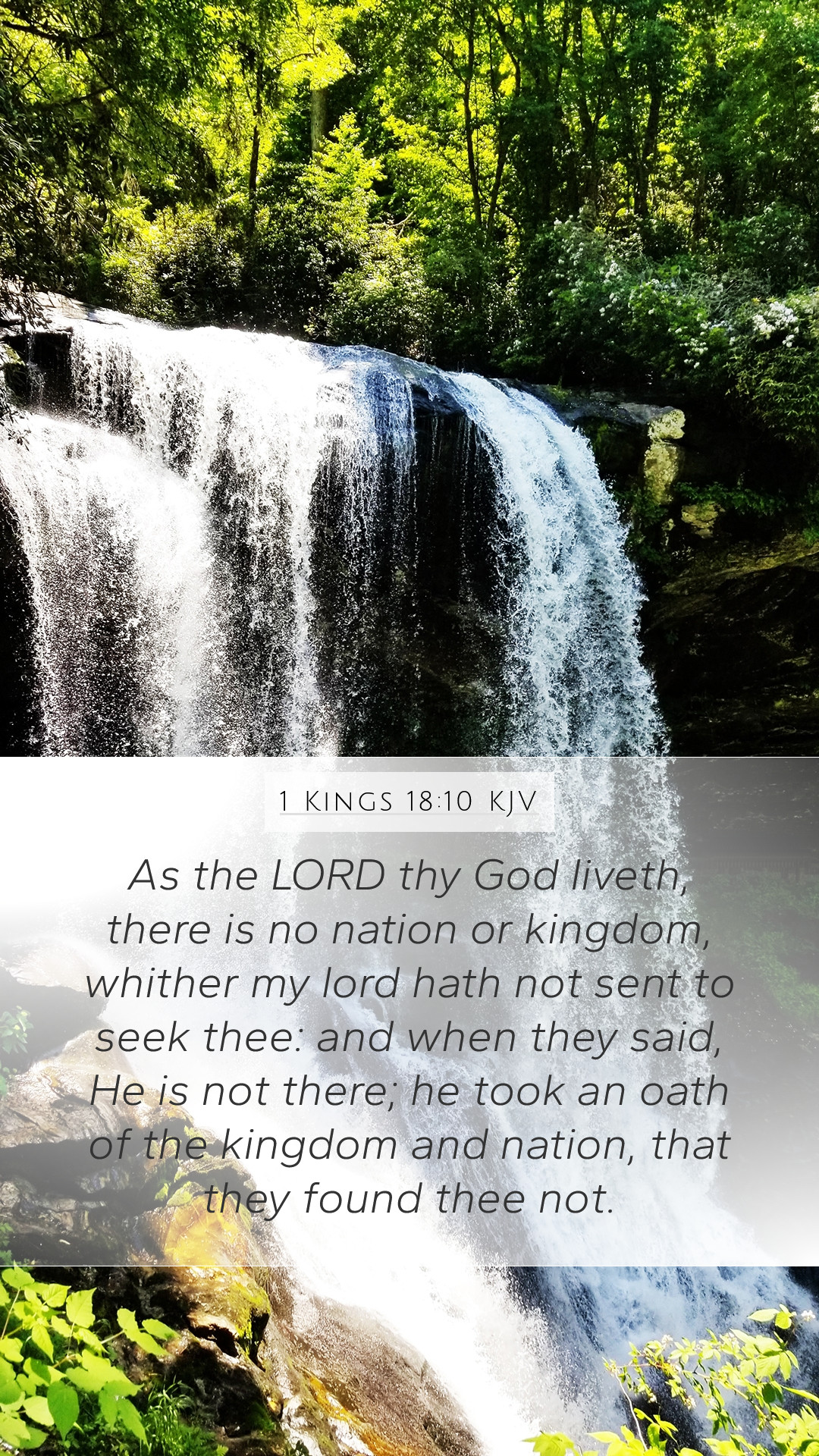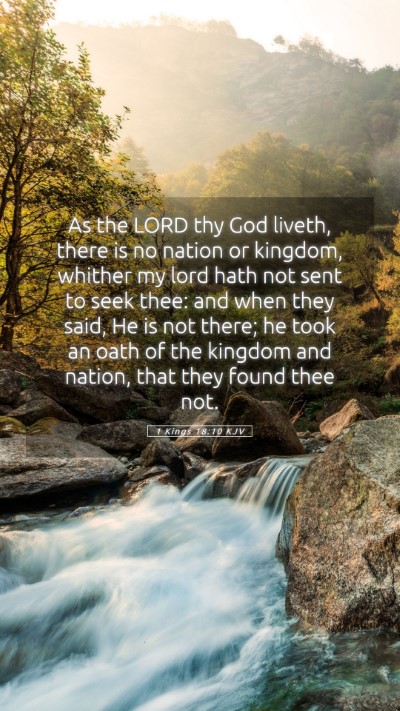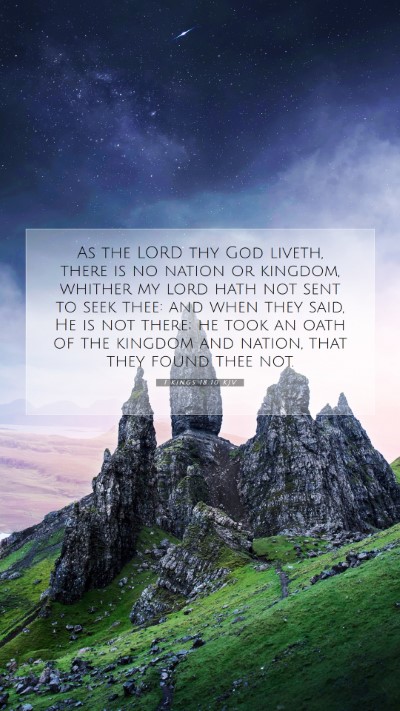Understanding 1 Kings 18:10
Bible Verse: 1 Kings 18:10 - “As the LORD your God lives, there is no nation or kingdom where my lord has not sent to seek you; and when they said, 'He is not here,' he took an oath from the kingdom or nation that they could not find you.”
This passage can be understood as part of a larger narrative where Elijah, the prophet of God, is confronting King Ahab and the corrupt worship in Israel. The context provides a critical insight into the fervent search for Elijah, showcasing Ahab's desperation and the severity of the societal crisis at that time.
Commentary Insights
Matthew Henry's Commentary
Henry emphasizes the gravity of Elijah's situation, noting that even in a small, goal-oriented area such as seeking out a prophet, there were extensive measures undertaken. Ahab's actions illustrate the length to which leaders will go to pursue power or to quell threats to their authority. The revelation of God through Elijah stands in stark contrast to the idolatry rampant in Israel, presenting a clear division between the true God and false deities.
Albert Barnes' Notes
Barnes highlights that Elijah's importance was recognized not only in Israel but also in surrounding nations. His prophetic role elicited responses from various kingdoms, revealing Elijah’s influence and the precarious position of the King, driven by fear and desperation. The phrase "as the Lord your God lives" reiterates the seriousness of the situation, establishing a foundation of covenant faithfulness that is juxtaposed against the king’s faithlessness.
Adam Clarke's Commentary
Clarke delves into the historical implication of this verse, portraying Ahab's efforts in searching for Elijah as reflective of his political vulnerability. Clarke notes how this pursuit indicates a foundational belief in the authority and power of the prophetic voice amidst a backdrop of moral and spiritual decline in Israel. The actions of Ahab were not just personal but also political, illustrating the intersection of leadership, faith, and spiritual authority.
Bible Verse Explanation
The verses surrounding 1 Kings 18:10 offer a vital backdrop to the understanding of this scripture. It was a time marked by the contest of deities and cultural loyalty, where the worship of Baal had severely compromised the allegiance to God. The search for Elijah reflects the desperation of Ahab to manage a situation that was spiraling out of control, spiritually and politically. This verse indicates the hope placed in human endeavors to combat divine prophecy, showing an inherent tension between man's authority and God's will.
Significance of 1 Kings 18:10
This verse serves as a poignant reminder of the prophetic struggle within a narrative of conflict between faith and idolatry. It represents not only a historical moment but the spiritual dynamics that still resonate in contemporary discussions about leadership, faith, and societal values.
Related Cross References
- 1 Kings 18:17-18: The confrontation between Elijah and Ahab, setting the stage for the prophetic challenge.
- James 5:17-18: Acknowledges Elijah's powerful prayers and their impact on drought and rain, emphasizing his significance as a figure of faith.
- Malachi 4:5-6: Prophesies the coming of Elijah before the great and terrible day of the Lord, showcasing his enduring legacy.
Conclusion
Through studying 1 Kings 18:10, readers can gain deeper Bible verse meanings and interpretations that enrich one's Bible study journey. The exploration of historical context alongside profound spiritual truths offers valuable Bible study insights for both individuals and Bible study groups. Considering the implications of this verse prompts individuals to reflect on the broader significance of prophetic voices in their lives and communities.
Further Study and Applications
The narrative in 1 Kings encourages believers to consider how they respond to divine messages amidst a chaotic world. Questions arise about how to apply the lessons of Elijah's steadfastness and Ahab’s desperation within today's context. This inquiry leads to a greater understanding of how to interpret and apply Bible verses in the scope of daily life and faith commitments.


